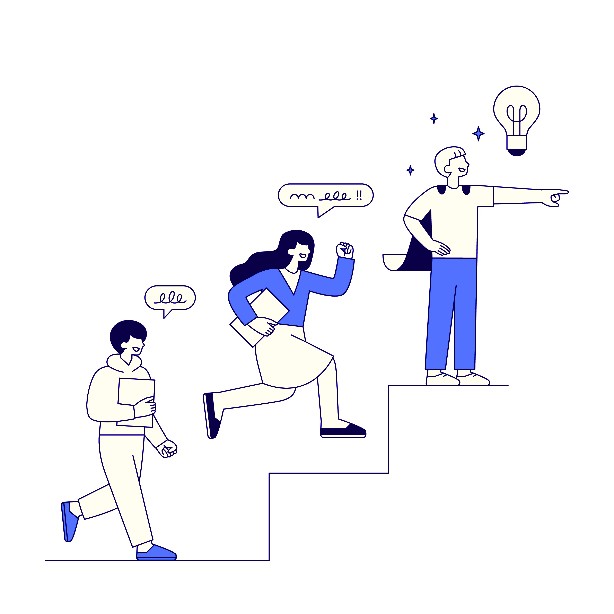From Manager to Leader: How do you Build Culture, Confidence and Capability in Post-16 Education?
In a previous article, Christine explored why change management is no longer optional in post-16 education. But there’s a bigger question to ask: once change is underway, how do leaders inspire, empower and sustain success, creating the culture, confidence and capability that help teams and learners thrive in an ever-changing sector?

From Manager to Leader
Once you’ve navigated the change, how do you lead in a way that inspires, empowers and sustains success?
Because while good managers keep the wheels turning, great leaders create the culture, confidence and capability that carry teams through complexity and keep them thriving when the dust settles.
Apprenticeship and skills delivery are more complex than ever.
We’re working against a backdrop of policy reform, digital transformation and heightened expectations for careers education, information, advice and guidance (CEIAG). There’s the continued push to integrate Maths, English and digital skills into every programme and the growing need to do so inclusively, for learners with increasingly diverse backgrounds and needs.
It’s tempting to focus purely on operational delivery. But in a fast-moving sector, technical management skills alone aren’t enough.
To deliver consistently strong outcomes, leaders in post-16 provision need to:
- Inspire – connect people to a vision and purpose bigger than their to-do list.
- Influence – win hearts and minds, even when you can’t control all the variables.
- Include – create environments where every learner and colleague feels they belong and can succeed.
Build a Culture: The Shift from Managing Processes to Leading People
Leadership isn’t about a title, it’s about mindset and behaviour. A “manager” can keep systems on track; a “leader” builds the culture that makes high performance possible.
Some of the most effective leaders I’ve seen in our sector:
- Know their default leadership style (and when to flex it).
- Draw on emotional intelligence to respond to individuals, not just situations.
- Create psychological safety, where staff feel able to raise concerns, try new approaches and learn from mistakes.
- Use models like Tuckman’s stages of team development (forming, storming, norming, performing) to guide teams through growth and challenge.
Champion inclusion, progression and core skills development as an organisational priority, not a bolt-on responsibility.

Why this Matters more than Ever – to Build Confidence
Inconsistent or purely operational leadership can lead to:
- Silos where teams work in isolation.
- A culture of “good enough” instead of striving for excellence.
- Missed opportunities to address inclusion and skills gaps.
In contrast, intentional, values-led leadership creates:
- Teams that feel ownership of outcomes and take pride in them.
- Space for innovation without fear of failure.
- Learners who benefit from an ambitious, joined-up approach to their development.
Leadership as a Driver of Capability and Quality
One of the most overlooked aspects of leadership in post-16 provision is the direct influence it has on core educational outcomes.
A leader’s priorities set the tone for:
- How Maths, English and digital skills are integrated into every learning journey.
- Whether CEIAG is seen as an afterthought or a central part of progression.
- How inclusion is not just embedded in policy, but lived in practice.
Strong leadership in these areas doesn’t just meet compliance requirements, it transforms learner experience, staff engagement and long-term organisational success.

The Reflective Challenge for Leaders in Post-16 Education
If you lead (or aspire to lead) in this sector, it’s worth asking yourself:
- Am I leading with values, or just managing process?
- Do my team members feel safe to speak up, experiment and challenge constructively?
- How am I building capability and confidence — not just in learners, but in my colleagues?
- In five years’ time, what kind of culture will people say I helped to create?
True leadership is about leaving behind more than completed projects.
It’s about shaping an environment where people grow, where ideas flourish and where excellence is not the exception, but the norm.

